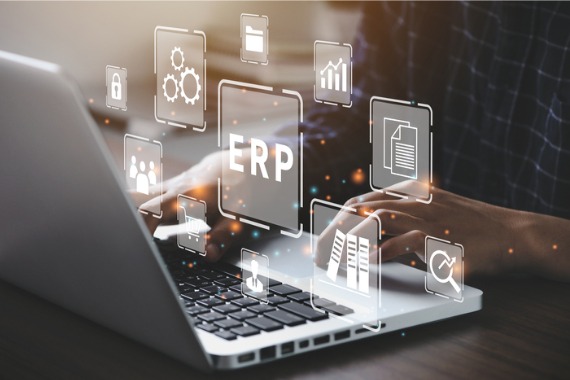ERP solutions are primarily designed to improve business performance and are often deployed based on an organization’s size, whether large, medium, or small.
Ironically, rapid changes in business requirements challenge a company’s size as the most fundamental factor to selecting the most appropriate ERP solution. Instead, an organization’s ERP solution should offer agile capabilities while simultaneously reducing the cost of operation.
To know which type of ERP a company needs requires a deep understanding of the respective industry and the unique needs of a business. Here are the different ERP types by industry and deployment options for you to consider.
ERP Systems By Industry
An effective ERP solution should harmonize internal and external processes and departments, enhance business workflows’ efficiency, and ensure adherence to company policies. Virtually all ERP systems are designed to improve communication throughout an organization’s processes, but industry-specific ERP solutions meet very specific industry needs. In that case, the industry and industry regulations determine the type of ERP solution developed. That said, this is how some ERP solutions are unique to different industries:
Manufacturing ERP
The nature of manufacturing processes is diverse, meaning the implemented system must keep track of numerous activities in the production process, like product quality, product planning, and product forecasting seamlessly. A manufacturing ERP solution has quality control features and end-to-end audit processes that reduce downtimes and enhance time management and delivery.
Technology ERP
In the technology world, profit margins and project risks are critical for the success of a business. Tech ERPs help manage the challenges during IT implementation projects and offer flexible features like quotation management, licensing compliance, and quality control.
Healthcare, Pharmaceutical, and Life Sciences ERP
A healthcare ERP helps to ensure the best patient care by automating processes that reduce data duplication and mistakes and centralizes data making it easier to enhance treatment and recovery plans. Healthcare ERPs also track data and improve communication between various divisions, ensuring that healthcare services are delivered seamlessly, internally or externally.
Agribusiness, Farming, and Agriculture ERP
Agriculture ERP software helps track and manage agricultural processes from seed to sale and land plots, livestock farming, and crop management. Ag ERP software solutions simplify the entire supply chain management by tracking seeds and fertilizers, managing the production and distribution of crops and livestock, and ensuring product quality control.
Food and Beverage ERP
The Food and Beverage industry has very high compliance and regulatory standards. An ERP system designed for the Food and Bev industry focuses on helping businesses comply with quality assurance, bidirectional traceability, and inventory control. Food and Beverage ERP systems include features that maintain food safety functions like allergen labeling, recipe management, and recall management.
Professional Services ERP
The professional services space is filled with competitive rivalries. Businesses must be innovative with their incentive structures to make continuous sales. A professional services ERP system improves the ROI by generating comprehensive reports that give insight into industry parameters, like trends and challenges. This information is helpful for monitoring, developing, and changing processes in a bid to increase sales and profits.
ERP Software Deployment Options
Companies can deploy an ERP system in three different ways:
- On-premise
- Could-based
- Hybrid
Choose an on-premises ERP software to maintain the implemented software in your organization physically. Here, your company servers host the ERP software, which gives you total ownership and control of the system. It also means your business oversees the support the system requires.
A cloud-based ERP solution is a Software as a Service (SaaS) web-based solution that stores data in the cloud. Therefore, any device with an internet connection can access the data once given authorization. SaaS solutions are often acquired on a subscription basis, meaning the vendor owns the software and oversees the solution’s support, updates, and training. The vendor also supports any customizations made for your organization.
The hybrid ERP system combines the on-premise and the cloud-based solution. Different vendors will have varying hosting and deployment policies for the hybrid model. Overall, the hybrid model offers the flexibility to integrate and migrate business systems between the on-premise and cloud-based capabilities according to demand.
Do You Need An ERP Solution?
If your current business systems are not efficient in handling risks, bottlenecks, and growth opportunities, you should consider implementing an ERP system. Look for opportunities for growth and improvement within your system processes. Any evidence of insufficiency, like using inaccurate or incomplete data or manually managing processes like financial reporting, should indicate that an ERP system is imminent.
Adopting technology solutions that meet your immediate business needs while anticipating and eliminating challenges is imperative, but be sure to consider what deployment option works best. In a world where collaboration from any location can bring competitive advantage, nearly any industry ERP solution is its most efficient when it’s cloud accessible.
FAQs
True or False: Of the 3 deployment types, a Cloud ERP deployment requires servers, space and a fully staffed IT department.
False. A cloud ERP is hosted offsite and frees up onsite resources and space that otherwise leave companies with a pricey structure. On-premise and hybrid ERP deployments require more internal management.
What are the types of ERP deployment methods?
The three primary types of ERP software are differentiated based on their deployment model options. The three include cloud-based ERP systems, on-premise ERP systems, and Hybrid ERP systems.
Why do different industries need industry-specific ERP systems?
Yes. Industry-specific ERP solutions reduce the time of implementation and cost of customization since they are already tailored to meet the most basic business needs of the industry.



